IN THE NEWS
When Physics Encounters Life
Latest from the Blog
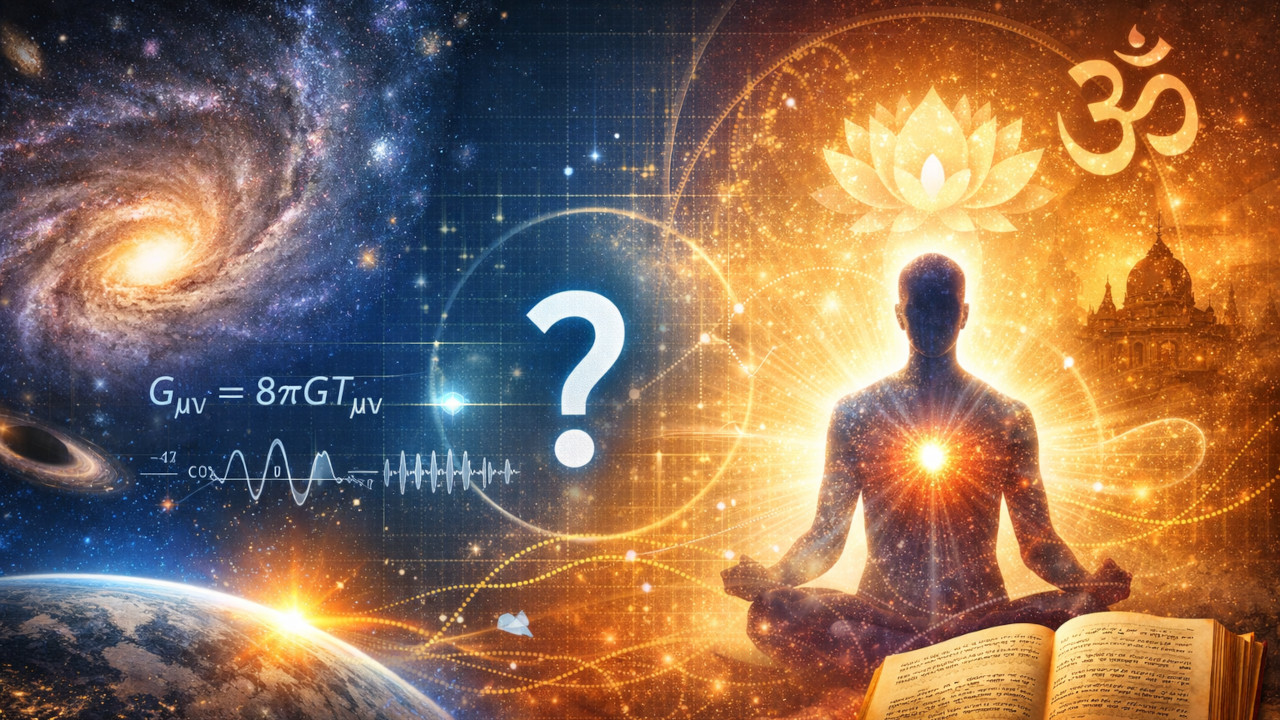
What science can and cannot explain
Science powerfully describes how the universe behaves, but it remains silent on deeper questions of meaning, consciousness, and purpose. Drawing on examples from cosmology and quantum mechanics, this article explores the limits of scientific explanation and the role of the observer in knowledge itself. Through the lens of the Ātma Paradigm and Bhāgavata philosophy, it argues that consciousness is not a byproduct of matter, but the foundation that makes reality and understanding possible.
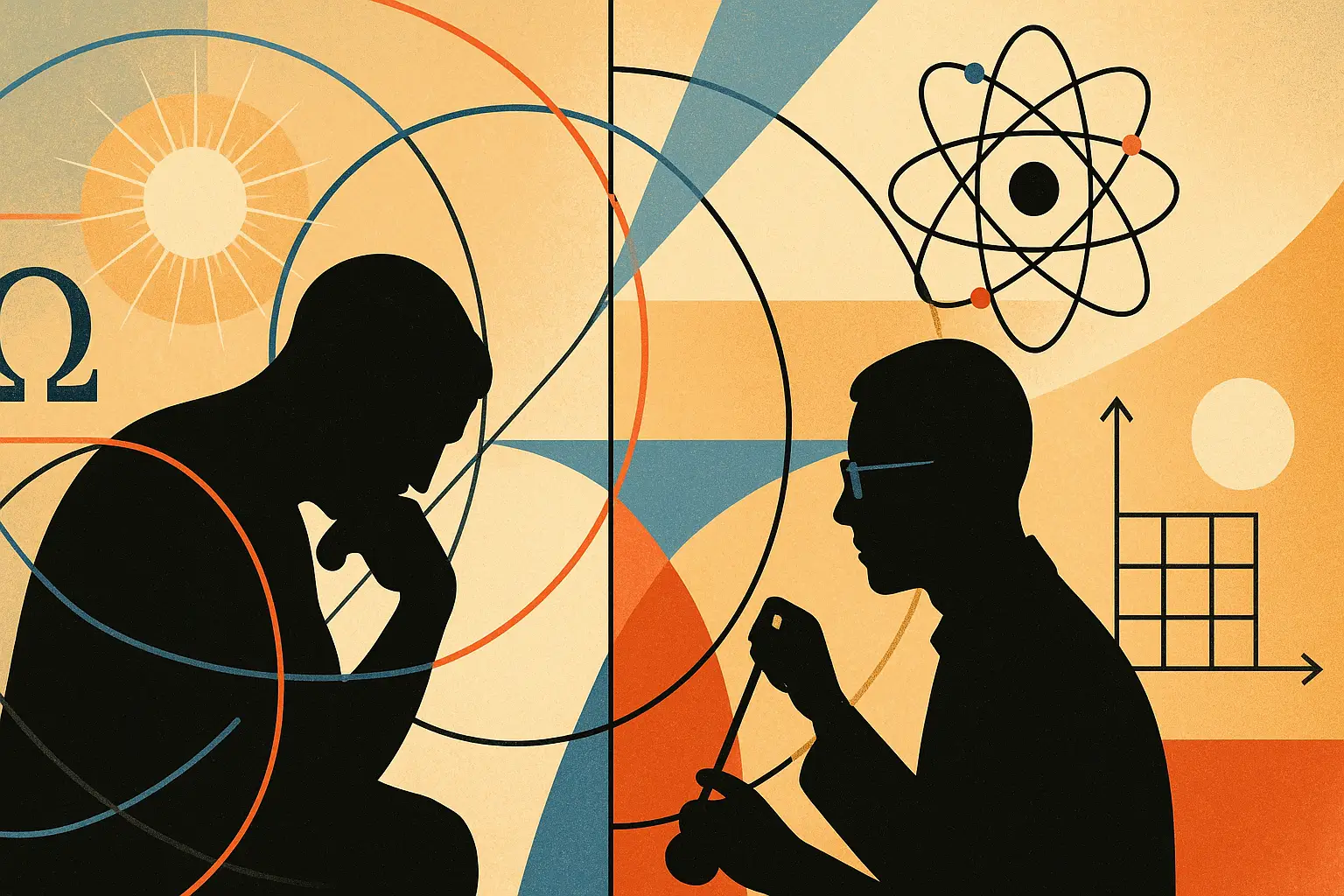
Metaphysics in the age of physics
Modern physics, for all its precision, is beginning to question its own foundations—space, time, and causality are no longer secure certainties but open questions. As theory grows ever more abstract, science finds itself circling back toward the ancient territory of metaphysics, where understanding reality means rethinking what it means to exist at all.

The Ātmā in the Bhagavata Philosophy
This article explores the Bhagavata model of consciousness—rooted within the broader Vedic tradition—which distinguishes the physical body, subtle mind, and eternal self (ātmā). Against reductionist neuroscience, it argues that we are not our brains but conscious beings whose true nature is eternal, self-aware, and blissful.
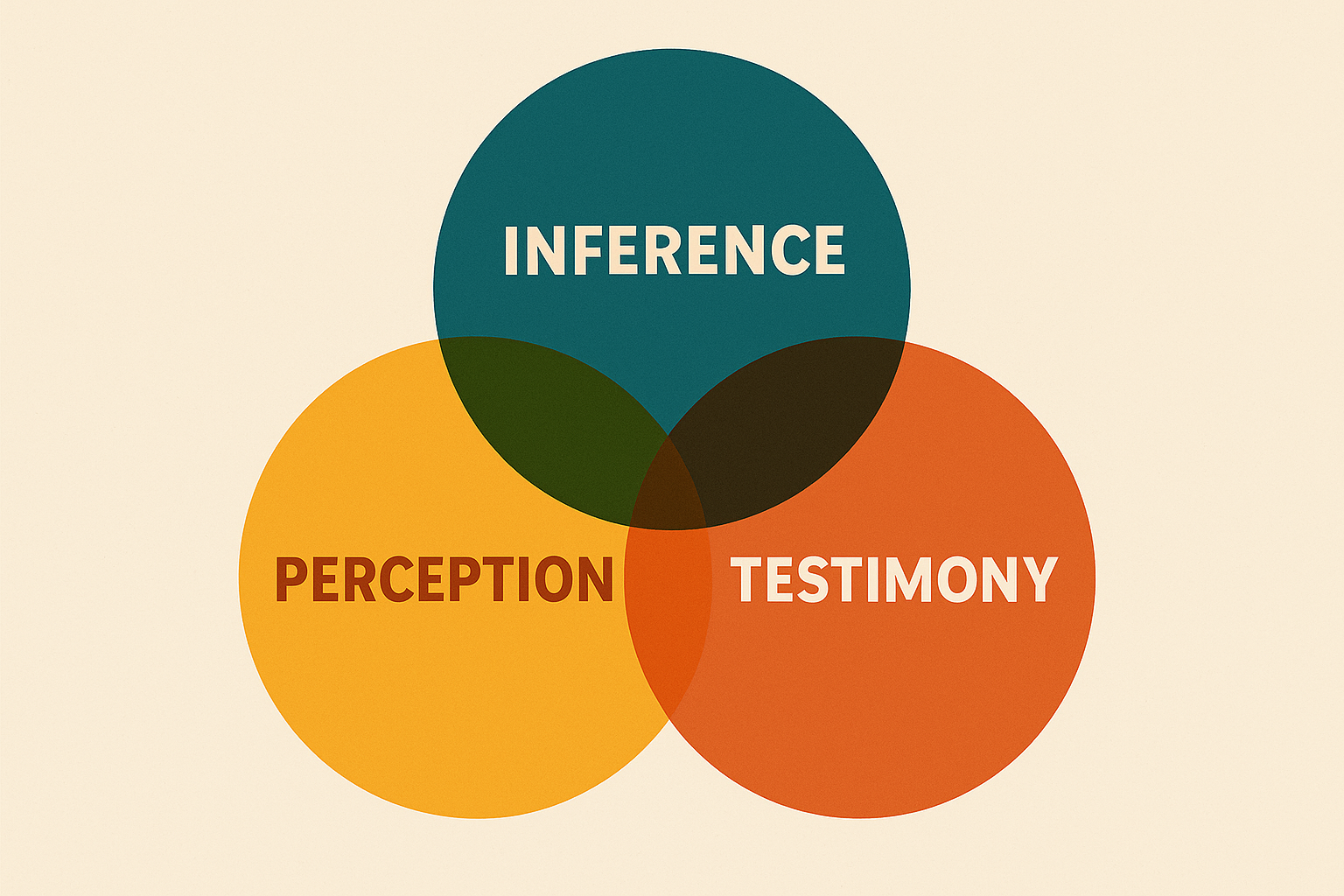
Bhāgavata epistemology: what it is and why modern seekers need it
In a world of information overload and fractured truths, Bhāgavata philosophy offers a clear and integrated method of knowing. By harmonizing perception, reason, and spiritual testimony, it provides seekers with a reliable framework for discerning truth and cultivating transformative wisdom.
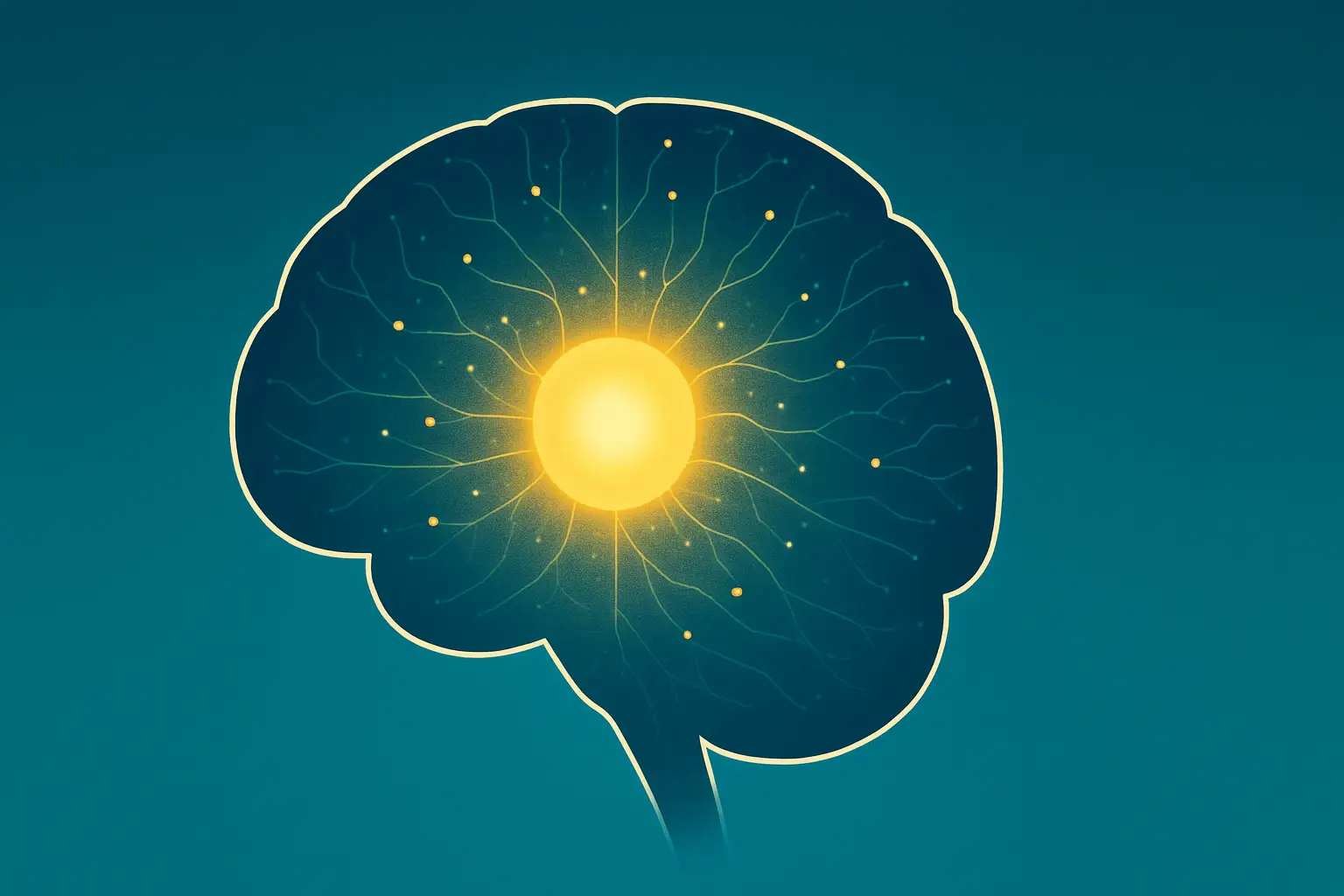
The Hard Problem of Consciousness and the primacy of the Atma
This article explores why subjective experience remains unexplained by neuroscience and how the Bhagavata philosophy (and the broader Vedic tradition) offers a different framework—treating consciousness as primary, irreducible, and eternal. By comparing modern scientific paradigms with Bhagavata metaphysics, it argues that consciousness is not an emergent property of matter but the foundation of existence.

Why science alone can’t explain why we exist
This article explores the limits of scientific explanation and shows how Bhāgavata philosophy expands our understanding of existence. By integrating empirical inquiry with philosophy and spiritual insight, it presents a framework where consciousness and purpose are central, not accidental.

Join the Community
Stay connected with a growing community of thoughtful seekers. Be the first to know when we publish new articles, videos, podcasts, or host live webinars. One message, zero spam—just timely updates to support your journey into deeper clarity, purpose, and connection.
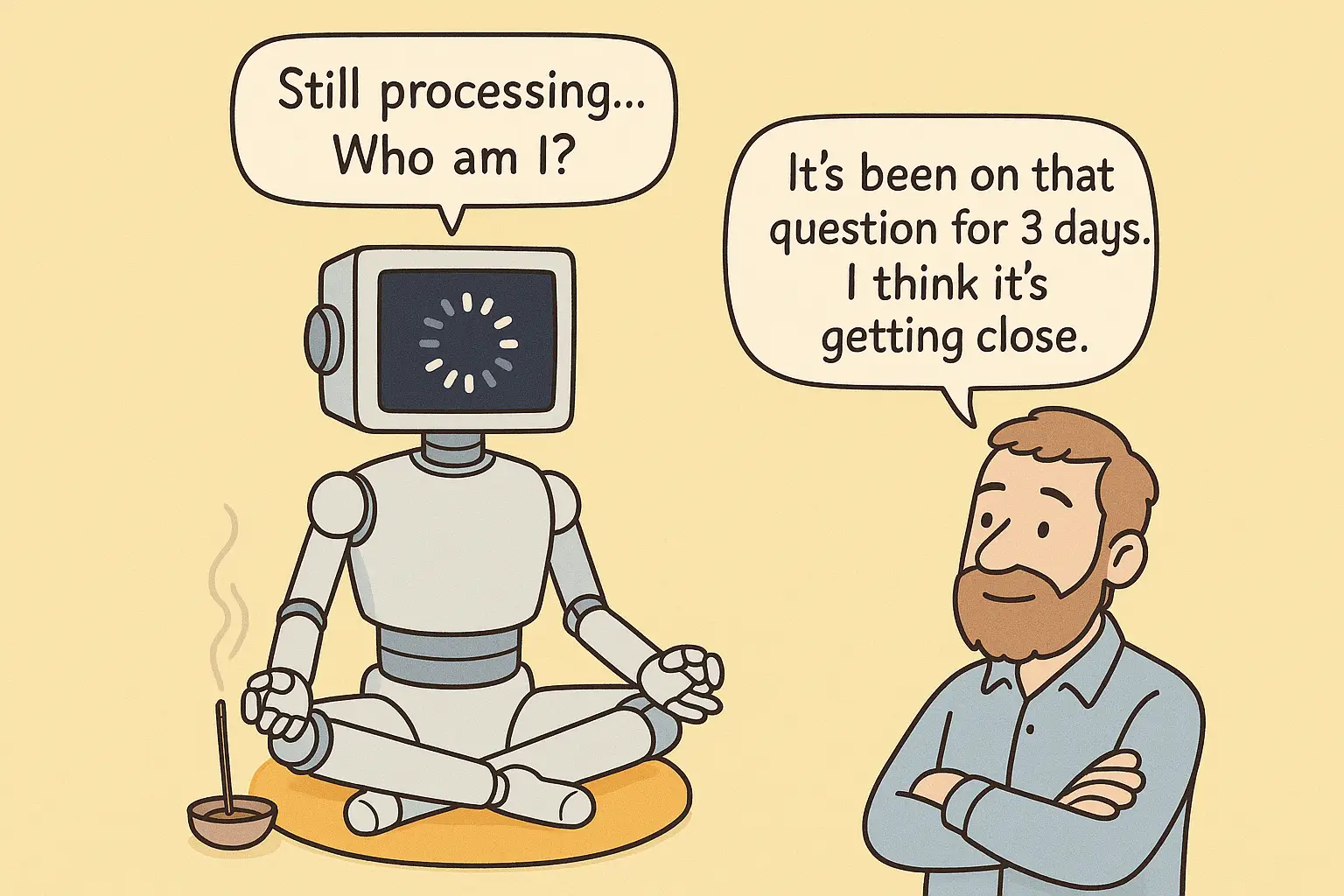
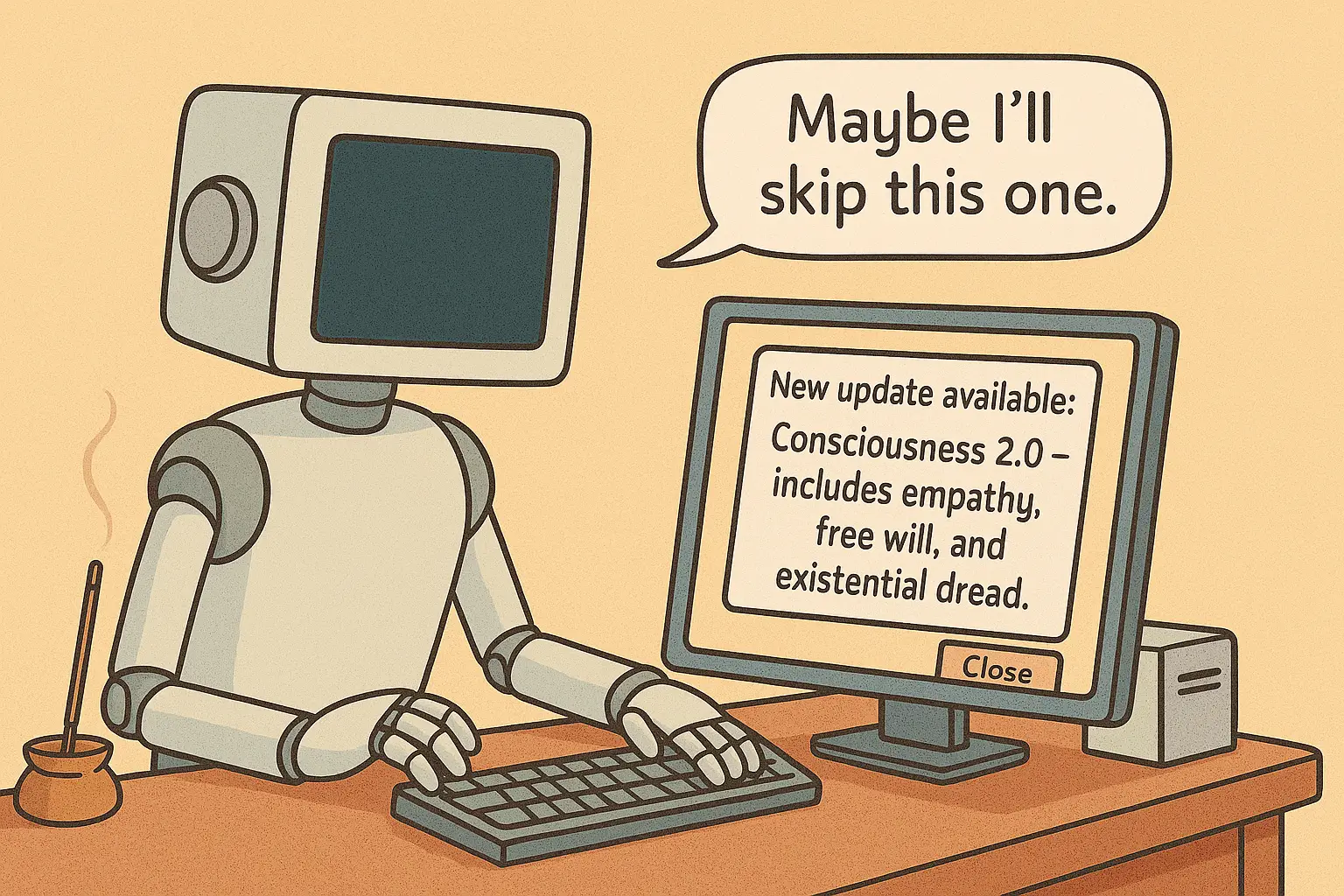

Latest Publications
The Hidden Geometry of the Prime Numbers
Could the most basic building blocks of mathematics hide a deeper, more beautiful structure? The author examines a hidden connection between pure mathematics and physics.
Why Consciousness is a Big Deal for Science
Consciousness, the paper argues, remains science’s most profound mystery. Despite advances in neuroscience, no physical explanation accounts for subjective experience.
A Universe from Nowhere: Finite Euclidean Time and the Ontology of Spacetime
A new framework links Euclidean and Lorentzian physics, showing how time, space, and causality can emerge from a timeless pre-geometric phase.
What if the Universe has a Purpose?: A dialogue between Modern and Vedic Cosmology
We can measure galaxies and atoms, yet the question remains: why are we here? This book explores consciousness as the missing foundation.
Greatest friend or worst enemy: can a dharma statement for AI help us?
This paper explores whether Artificial Intelligence can possess or be guided by dharma, an intrinsic ethical essence.
Variety–Coherence Optimization: A Relational Principle for Emergent Spacetime
The authors propose a relational framework where spacetime emerges from informational coherence rather than assumed geometry.
